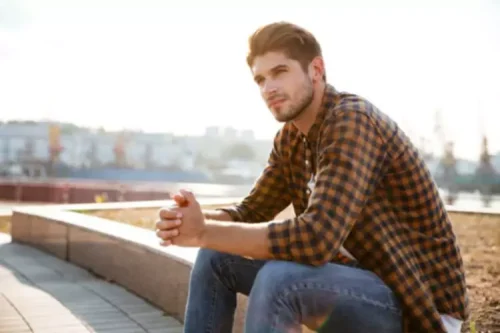The Downside of Sobriety: The 6 Things No One Tells You Might Happen If You Quit Drinking

Research from the Department of Veterans Affairs demonstrates that people who participate in 12-Step programs tend to have better outcomes than those who don’t. For many, returning to daily life after treatment means returning home to family, which is why family can be the strongest social support system. However, relationships within the family may have been impacted by substance misuse and therefore, require mending. Support isn’t just needed to get a person started on the path to recovery from addiction. As stated above, support can help the individual stick to treatment through the duration of the program. In addition, having a support network once treatment is over can ease the transition from rehab back to daily living.

Step 3: Find the Right Treatment Program
You can always improve how you fare in sobriety by looking at where you can improve your quality of life. I share my experience because I do not want others to be blindsided like I was. https://ecosoberhouse.com/ Sobriety is not all roses and reggae, after all, and those who are in a position to help, will always stress the indisputable fact that being clear-headed is better than being a drunk.
Thiamine Deficiency in Alcoholics (Easily) Explained
- Choose to recognize that the choices you make directly impact your experience.
- The person who posed the question felt she had been misled.
- Just keep in mind that your improvements won’t happen overnight.
- You must be ready to change in order to find the best treatment program for you.
- The hope is that you will be ready to resume daily life after treatment, manage stressors and triggers, and stay sober for the long term.
When I stopped drinking, not only did my recovery dictate that I needed lots of time to myself, lots of self-care, and lots of nights in, I discovered that I was, in fact, someone who relishes in alone time. I recharge when I’m by myself, and I deplete when I’m with others—especially big groups. Thankfully, being sober sucks there have only been a few times when someone at the table hasn’t pointed it out on my behalf and adjusted accordingly. However, when it has happened, I have to speak up to point out that I didn’t drink and I’m not subsidizing their drinking. If you’re like me, this can feel entirely terrifying.
Stay Cool and Calm
If your family and or friends aren’t motivating you to seek help for your substance misuse, make an appointment with a medical or addiction treatment professional. These individuals can direct you toward the resources you need for recovery, including the needed services and diagnosis of substance use and any co-occurring mental health disorders. In fact, being sober can make your life more fun and rewarding than it’s ever been before.

Without the distraction of wondering when you can go get drunk or high, you’ll be able to stay physically and emotionally present with others. You’ll probably find that the important relationships in your life mean more to you than drugs or alcohol ever did. When reaching out to family and friends for support, it’s important to choose wisely.

Why Does Your Personality Change When Drinking Alcohol?
Choose A New Healthy Habit

- We wouldn’t be alive without the help of our favorite twelve step programs, but that doesn’t mean recovery doesn’t fully suck too.
- Your feelings will look different in a day, a week, a month, and a year, so look to the future with optimism.
- Developing a structured routine can help a person stick to their sobriety goals, make healthy decisions, and reduce the likelihood of triggers and relapse.
- While getting and staying sober was the best decision I’ve ever made, in a lot of ways it’s also been the most challenging.
- I have always hated the feeling that I’m putting people out or being difficult.








